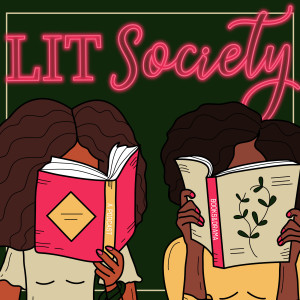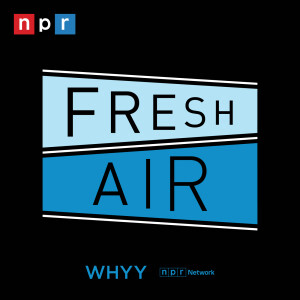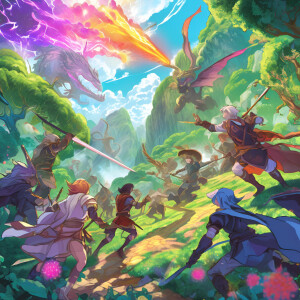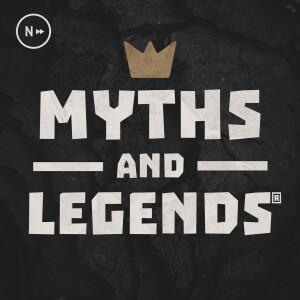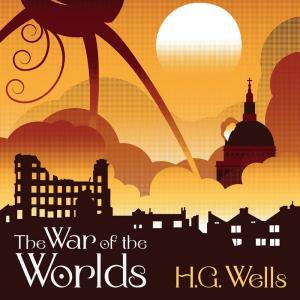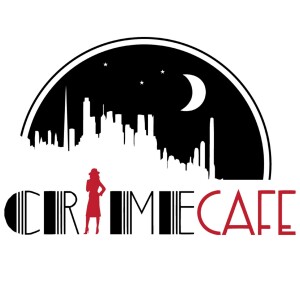

My guest interview this week on the Crime Cafe podcast is with thriller author Christina Kovac.
Get the bird’s eye lowdown scoop inside story about her latest novel, Watch Us Fall!
For a copy of the transcript, click here.
Debbi (00:54): Hi everyone. My guest this week worked in television news covering crime and politics at Fox Five’s 10 o’clock news in Washington DC. She went on to become a news producer and desk editor at the Washington Bureau of NBC News. She now writes psychological suspense thrillers set in DC. DC is one of my favorite places to talk about since I live near DC and worked in DC and well, I feel like a DC native almost. Her latest novel coming out in December is called Watch Us Fall. It’s my pleasure to have with me. Christina Kovac. Hi, Christina. How are you doing today?
Christina (01:36): I’m doing great. Thanks for having me.
Debbi (01:38): It’s my pleasure to have you on. Believe me, I’m always interested in talking to journalists and former journalists because you guys have such a difficult job. I mean, I know once upon the time I aspired to be a journalist, did freelance writing for a bit, but anyway, but I am intrigued by the description of your latest novel, which Alafair Burke described as, and I quote, “an insightful look at the complex dynamics of close female friendships and the lingering effects of trauma.” Wow. Tell us more about what inspired you to create the story.
Christina (02:19): I started writing in the beginning, or I think it was in the beginning of the end of the pandemic, and a lot of people around me were coming out of the pandemic. It felt sort of traumatized. I think we all came out of our houses sort of stumbling. I don’t know how to act anymore. I don’t know how to with my friends anymore. I don’t know how to hug people anymore. And it really struck me that being alone, being away from each other felt like a traumatic experience. I wasn’t writing out of my own experience. But then I started thinking about what must that be like to have a kind of traumatic experience and then finally find a bunch of friends that you just want to hold onto and that you build this life around. And that was what these four female characters did.
(03:30): They met in college. They’re Addie, Lucy, Penelope, and Estella, and they met at Georgetown and they became fast friends, and they were actually, when I was writing, I imagined that they started college during the pandemic like my daughter did, which was really a traumatic experience. They were stuck in their dorms. It was just a really horrible thing. They didn’t get to know each other, but what they did was they kind of hung out, the group in their little quad. They hung out very tightly together, and they became just kind of forever friends. And so I thought that was really interesting. I wasn’t writing out of my own traumatic experience, I will be honest. But at the time that I was writing, I was also very interested in the fact that misinformation had taken off.
(04:25): A lot of people were listening to lies on the Internet about COVID and all the rest of things, and I wondered why they were so open to things that were obvious lies and misinformation. And I started to wonder if there was a connection between being alone in COVID and feeling kind of traumatized by that and believing things that were the exact opposite of what their doctors were telling them and what made absolutely no sense to any sensible human being. Basically, why you would believe a lie. And that was really the beginning of my thinking about these people. So it’s a bunch of disparate strands, strands, excuse me. It started in one place. It moved all over the place. That’s kind of how I write. I don’t know why. I wish I could just pick a lane and ride down the highway, but that’s just not really how I roll.
Debbi (05:19): Yeah, yeah, I can appreciate that. It’s funny how when you’re writing, sometimes ideas come and stuff that you thought you were going to do change.
Christina (05:30): But the beginning idea to take these four best friends in college and have them living a post-grad life in Georgetown, that was kind of always there. I was thinking a lot about how I miss my friends during the lockdown. I really miss the kind of hugging and the whispering, the drinking together and just handing a book off and saying, Hey, this is, and so I really had this feeling of just really intense loneliness that I wanted to write about four friends who would just do anything for each other and who would protect each other no matter what. And that was actually the seed of it all, and I think it stemmed from loneliness, from the pandemic.
Debbi (06:26): Yeah, I can definitely believe that. It’s very interesting. Yeah. What sort of writing schedule do you keep?
Christina (06:35): I write first thing in the morning.
Debbi (06:37): First thing in the morning.
Christina (06:38): I’ve trained myself. I used to be, when I worked in news, I worked nights. I did nightly news for, I worked in the Washington Bureau of NBC News and my shift was three o’clock in the afternoon, cover nightly news, and then do whatever The Today Show needed and then leave at 11. So that was kind of my thing, and I thought, I want my new life after I left TV to be very, very different from my writing life. So it’s like, okay, we’re just going to have to get used to being alone, not in a newsroom. We’re going to have to get used to sitting in your office in this mess of an office all by yourself. So I just set my alarm every day for six o’clock. I get up and I make coffee. I sit at my desk, my cat starts meowing. That is occasionally annoying, but I try and write as long as I can.
Debbi (07:35): Morning writer. Yeah, I am with you there. I like writing in the morning. It’s just really weird. At one point, the afternoons were always better for me. Then suddenly it’s switched to morning. Like, it’s kind of like brushing your teeth. It’s kind of like that habit that you form and you just kind of keep at it because really you got to do it. You got to get those words out there.
Christina (08:00): And also the thing that I really got used to that I love so much is I make this huge pot of coffee, and then I just sit there and I just slam coffee and write and next thing I know, I am so caffeinated. I’m like, okay, now I have to get up and get away from the desk and go for a walk and hopefully come back.
Debbi (08:21): Oh, yeah, walking is important. I have learned that. Get up and walk away now. And then, what was it that made you choose to do standalone thrillers as opposed to say a series?
Christina (08:35): My first book, The Cutaway, actually could have been a thriller, and I thought about it, I’m sorry, could have been a series. And I actually thought about it because I thought Virginia was the main character, and I thought she was a really good character and she could carry it. I thought she could carry probably a trilogy. A lot of things happened after the contract that just made that sort of insupportable. I thought, I actually probably need to do standalones. My editor for one, was really interested in doing a different kind of novel, so you kind of get stuck a little bit with that.
I also was really obsessed with this idea of these four women living together and what their lives are like. And so I lost, I think the thing is you can only write what you’re really obsessed with, and I really became obsessed with this female friendship thing, the dangers of being a woman, the dangers of walking around in a female body. And that was very different than the kind of novel that I was writing in the cutaway. So I talked to my agent about it and I said, I have this really kind of feel for this different novel that I’d like to do. And he said, I just think it sounds great. Let’s do it.
Debbi (10:04): Yeah. You really do have to feel, I guess, almost passionate, I guess the word is the only word I can think of about what it is you’re writing about.
Christina (10:15): Because you’re getting up every day to write about it. I mean, it’s every day for a year.
Debbi (10:20): It’s a commitment. It’s a commitment of time, commitment of effort. Were you still in journalism when you started writing fiction?
Christina (10:30): Yeah.
Debbi (10:34): That must have been tricky.
Christina (10:35): Yeah. I’m trying to remember exactly when I left. My husband and I, we have two kids. And he’s also in journalism. He, he’s a broadcast engineer, and we were really struggling with the idea of how to work our schedules around our family. It was just really a problem. And I had always loved, I was an English major and I had a dual major. I was English and journalism, and I had always loved this idea of working in the literary world, writing fiction. I really loved the scope of a novel.
One of the most frustrating things that I found in TV was, your story is basically 30 seconds or a minute, and you cannot get into the answers to questions that you need answered. You can barely get into who, what, don’t even think about why. And to me, that’s the most important thing there is why do people do this? What are the things in their world that are pressuring them? What makes a criminal? Are they born? What did they encounter in their world that made them this way? And journalism can’t answer any of that. Or at least not TV.
(11:56): Long form journalism is different, of course, I’m not. But a novel is where you get into the heart of people and into the mind of people. So I wanted to do that. So I said to my husband, look, we’re really struggling with this family-work dynamic, balancing things. I mean, I think that we’re doing okay. What if I just left TV and wrote a novel? And he said, well, do whatever you want. And in the back of my mind, I thought, how hard can writing a novel be? Oh my God, it’s hilariously. It was so hard. And then publishing it is insane and every step of the way is just so, I was completely naive. And maybe a little stupid, but I was also lucky to be so stupid.
Debbi (12:42): I think most of us come into this naive, to some extent. I was fortunate or unfortunate enough to have a father who was a failed playwright. So I came into writing knowing there’s no money in this. If there is, you’re lucky. So when I started out, I was a freelance writer, and it was like, Ooh, to get paid to write, this is awesome. But that’s my story. That’s part of it, anyway. So based on your previous interview that I was reading, it sounds like you’re kind of hybrid pantser and plotter in the sense that you kind of get everything out, find the ending and look for the plot points in the middle. Does that sound about right?
Christina (13:33): You know what, yes, but the book that I’m writing now, my Book Three, my work-in-progress, I did a lot more planning. I really learned my lesson.
Debbi (13:48): Oh, yeah. I tell you. Yeah.
Christina (13:51): How is pantsing painful when things aren’t working. I mean, how lucky I got The Cutaway, that things just kind of fell into place. This book was a lot more difficult. Things did not fall into place. These characters were sometimes really fought me, and I think it was that I just didn’t have them right. And I think if I would’ve spent a lot more time preparing the work that I’m doing now, it’s very much a lot more planning. It’s a lot more thinking ahead of time about what I’m going to do. I’m also not under a deadline, so that makes things a lot less stressful. I think going forward, I would like to be more of a planner slash planner slash pantser. Yeah. A little of both.
Debbi (14:39): Planner slash pantser.
Christina (14:40): A little of both.
Debbi (14:43): Yeah, I do a little of both myself. I’m always looking for the plot points to get me to an ending I usually have kind of an ending in mind. And I have a general idea of the general area, the local area of where I want to go, even if it’s not exactly what happens, I want to have some idea of how the protagonist ends up at the end, the sleuth, as it were. So yeah, it’s interesting how I’ve gotten away from careful plotting and gotten more into this kind of flow plotting.
Christina (15:24): I love that.
Debbi (15:24): It’s about the characters, ultimately. It’s like, what are the characters telling you to do? So among other things, I noticed you described the DC area as—I love this—beautiful and misunderstood. I love the part where you said it’s misunderstood. I can see the beauty, but you can tell me, what do you think is beautiful and misunderstood about DC?
Christina (15:54): We all know the big white buildings shining along the river. We all know the Washington Monument and the Kennedy Center and all the glitz of the federal section downtown. I think a lot of times people think it’s just that, or they have a memory of going to the Air and Space Museum, and they have this idea that DC is a kind of way. And a lot of the people that are down there that work down there aren’t even DC residents. A lot of them are commuters. A lot of them are sent here, obviously by voters from far places. The District of Columbia is itself such a vibrant, exciting, strong network of neighborhoods that have a culture that is not known by a lot of people across. So whenever you hear things, when I say misunderstood, I so often hear well in Washington DC and what people are talking about, I think is a political system that yes, I mean, that’s the big business down there, right?
(17:13): I mean, there’s the State Department, there’s a Department of Labor. There is, I mean, it’s a huge thing in the middle of Washington DC, but the people in the neighborhoods are very different than that. They are, to me, some of the nicest, some of the most talented, some of the most interesting people. They’ve moved here from all over. A lot of them, some of them have been here five generations. Some of them came up during the Civil Rights Movement. They love their city. They contribute. They pay a lot of taxes, and they contribute a lot of talent. In DC you’ll get go-go, you’ll get great music, you’ll get great restaurants, you’ll get great theater. It is, and yet, and the thing that people don’t understand is really how small it is though, in a lot of ways. All these neighborhoods, they intersect against each other.
(18:18): Capitol Hill isn’t just politicians. Capitol Hill’s the largest neighborhood in Washington DC full of people who have lived there for some families for generations. And it’s a beautiful place for books. It has my favorite bookstore in the country on Capitol Hill. The parks are huge, and some of them are quite wild. Rock Creek Park, you can actually get lost in and C&O Canal, you can actually get hurt on. The Potomac River is no place to swim. I’m sorry. Don’t do it. So it’s not what you see on TV. It’s so much more complicated than that. The people are so lovely, and diverse, so diverse, and I was so lucky to have spent 17 years reporting their news.
Debbi (19:10): Yeah, when I moved to this, I had moved out of the area for a while. I was in high school here, moved out of the area for a bit, but came back ultimately because I thought it’d be a great place to be a journalist, which I didn’t end up doing. But still, it’s great place. What you’re saying is right. I mean, all those things are right, and getting an appreciation for DC as a city is something I always kind of champion. What authors do you like to read and draw inspiration from?
Christina (19:43): Oh my goodness. I probably read two, three books a week, so I’m going to leave people out. I was so thrilled to get, I specifically went and asked for all the blurbs on my book, and I chose the writers that I love, and they were so generous and kind.
(20:06): So I think I’ll talk about them first. Angie Kim is my favorite. Alair Burke, who you noted. Alex Finlay is a fantastic DC writer. And so Janelle Brown, she’s just, I’ve read every single one of her standalones since Watch Me Disappear, which was probably to me, one of the most interesting books I’ve read. I highly recommend it. It’s older now, but she never writes a bad book. They’re always wonderful. I mean, I could go on. Megan Abbott is an author that I loved that she’s the reason why I queried my agent, because I read that he was her agent. And so when I picked him because he loved Megan and then he loved me, and I was like, oh my God, I’m so thrilled with that. So I have a lot of loves. There’s so many talented writers out there, but I think those guys are all top tier.
Debbi (21:19): That’s fantastic. Yeah. Let’s see. I understand you’re working on a third novel now. I am. Can you give us a brief teaser as to what that would be about?
Christina (21:32): So there’s three women in this book. It’s set on Capitol Hill. Present Day. I can’t talk too much about it because I’m still working through some things that actually might change. But essentially what it is, two of the families are basically at war with each other. They do not like each other. They are not fans of each other. And the two women are mothers. And the question of the book is how do we protect our children? And they come into conflict over that. They both have children that went to the same school, both girls the same age, and something kind of terrible happens at the school. So it’s another psychological thriller. I’m doing third person though, with three characters, which has really been a stretch for me. But I love this one so much, and I have plotted it. I think I’ve planned it very well. I think. We’ll see.
Debbi (22:37): Well, good luck with that. I’m sure you’ll do great. What advice would you give to anyone interested in having a writing career?
Christina (22:51): I would say read everything that you can, but especially in the genre or type of book that you want to write. That’s the biggest thing. Start your writing practice early. Make it just a part of you. It’s like going to the gym, or if you’re an athlete going to the batting cage, you just go every day. You just do it every day. Support your local bookstores because they’re at the heart and blood of every author’s life. And without them, the literary world would be in trouble and be a good neighbor with other authors. When I asked for these amazing authors to read my book and blurb me, their generosity was astounding. So be generous. I hope to give back as much as I’ve been given, and I’ve been given so much, and I’m so lucky.
Debbi (23:45): Yeah. Yeah. That’s excellent. Excellent thoughts, especially about the bookstores especially. I love that. Is there anything else you’d like to add before we finish up?
Christina (23:59): No, I’m just so excited about this book. I am so hopeful for it, and it’s sort of three months away at this point that we’re recording. And I am just very, very happy. And I hope that people will love these four girls and the man that is a point of view character in it, his name is Josh. I just hope they’ll love him.
Debbi (24:27): Well, that’s awesome. And I wish you all the best with the book. And I love, by the way, I love the idea of group dynamics in a book or in a show, on a TV show that’s often just great. That’ll captivate me. The characters all interacting with each other, that kind of thing. So best of luck with that.
Christina (24:51): Thank you.
Debbi (24:52): And I want to thank you so much for being here today and spending time with us.
Christina (24:56): I’ve loved it. Thanks.
Debbi (24:57): Oh, well, thank you. And let’s see. I will replace myself. There. I’m on the screen now for those of you watching. Let’s see. I want to thank Christina again for being here. I’ll get that right someday, Christina. Okay. And we will do a short bonus episode for the Patreon supporters where we can talk journalism. Oh boy. Also, crime and politics, which used to be two different things.
Christina (25:31): Unfortunately. Yes. Although not too terribly. Trust me.
Debbi (25:35): I know. I mean, I did study history. I know that there were all sorts of corrupt administrations in the past, but this has just been a very bizarre time. It does kind of make you wonder if David Lynch is directing from somewhere up in heaven. I don’t know. In any case, thank you everyone for watching or listening. And my deepest thanks to my Patreon and Substack supporters. Thank you so much for your support. It helps. Until next time, when my guest will be Desmond Ryan. Take care. And happy reading.
*****
For bonus episodes and other perks, become a Crime Cafe Patron!
More Episodes
All Episodes>>Create Your Podcast In Minutes
- Full-featured podcast site
- Unlimited storage and bandwidth
- Comprehensive podcast stats
- Distribute to Apple Podcasts, Spotify, and more
- Make money with your podcast
